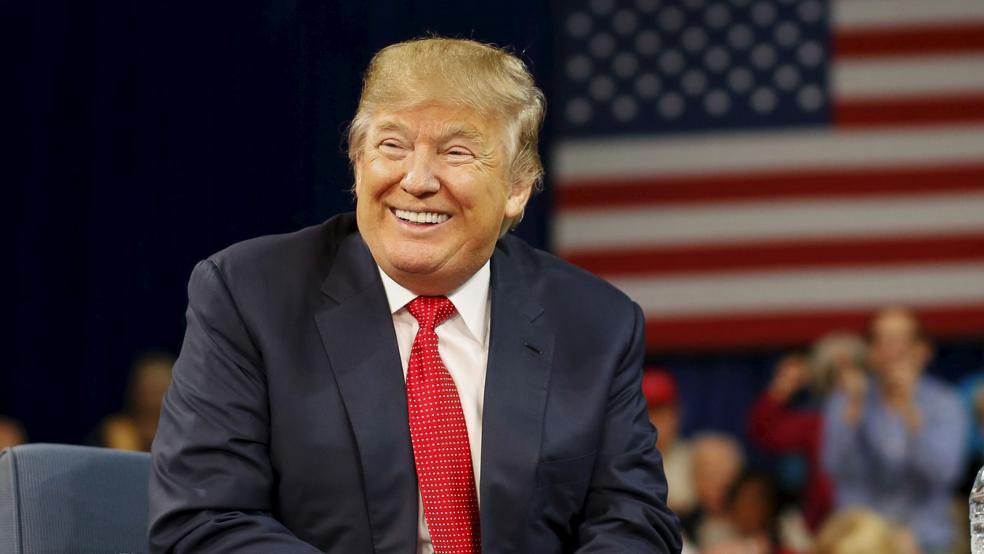Since his entry into the Republican presidential contest, Republican frontrunner Donald Trump has inspired no end of garment-rending commentary from the political media about what his success in the polls really means.
How is it possible that so many Americans support a candidate who repeats claims that have been demonstrably debunked as lies, has only the most tenuous grasp on important policy issues, and appears to be scraping the very worst elements of racism and xenophobia from the bottom of the United States’ cultural barrel?
Related: The Top 10 Political Lies of the Year
Surely, there must be some explanation of Donald Trump’s poll numbers, right?
Well, according to an interesting experiment conducted by the Morning Consult, Trump’s numbers need more explanation. It’s not why they’re so high. It’s why they’re so low.
Numerous poll watchers have spotted a trend in Trump’s numbers. The billionaire former reality television star consistently polls higher in online polls than he does in polls conducted over the telephone by a human questioner.
For years, live polls have been treated as the gold standard in the industry, producing what experts have considered to be the most reliable results. As a result, the live interview polls conducted by high-profile media organization and polling firms often get the most attention from reporters and pundits. However, online and automated telephone polling is much cheaper, and both have been getting more reliable as polling companies learn how to navigate a relatively new environment for their work. And when it comes to Trump voters, they may be more accurate.
Related: Donald Trump’s New Role – Apologist for Vladimir Putin
The reason, as Morning Consult executive director of polling and data science Kyle Dropp notes, is that many voters appear reluctant to admit to being Trump supporters when talking to another person.
“Republicans are more likely to say they want Donald Trump in the White House if they are taking a poll online versus in a live telephone interview,” Dropp wrote. “And, if you’re a highly-educated or engaged Republican voter, it turns out that you’re far less likely to tell another human being you want Trump as president.”
The study identified nearly 2,400 registered Republicans and Republican-leaning independents. All of the respondents initiated the poll online, but only one-third of them completed it online. Another third of them were transitioned to an automated telephone poll, and the final third to a poll conducted by a live interviewer. They were all asked the same questions, at the same time. The only difference was how the questions were presented.
The difference in response rates was pretty stark. Weighting for demographic factors, the study found that Trump got 38 percent of Republican voters who took the poll online, 36 percent of those who took the poll through an automated telephone questioner, and only 32 percent of those who had to talk to another person directly.
Related: Putin Would ‘Welcome’ a Donald Trump Presidency
The study also noted that few of the other candidates in the race saw appreciable differences across polling platforms. Texas Sen. Ted Cruz was the only other candidate who did markedly better online than in live interviews, and the difference was only 2 percent.
“What explains Trump’s worse numbers on the phone?” wrote Dropp. “One possible explanation is ‘social desirability bias,’ or in other words, people being reluctant to select Trump when talking to another person because they do not believe it will be viewed as a socially acceptable decision. Trump is not the pick of the political pundits, and people intuitively get that.”
While cautioning that it is too soon to make definitive pronouncements based on one poll, Dropp said that the privacy of the voting booth, much like the anonymity of an online poll, may make it easier for reluctant voters to cast a ballot for Trump.
“What this divide does suggest is that some polling may be understating Trump’s actual level of support,” he said.





